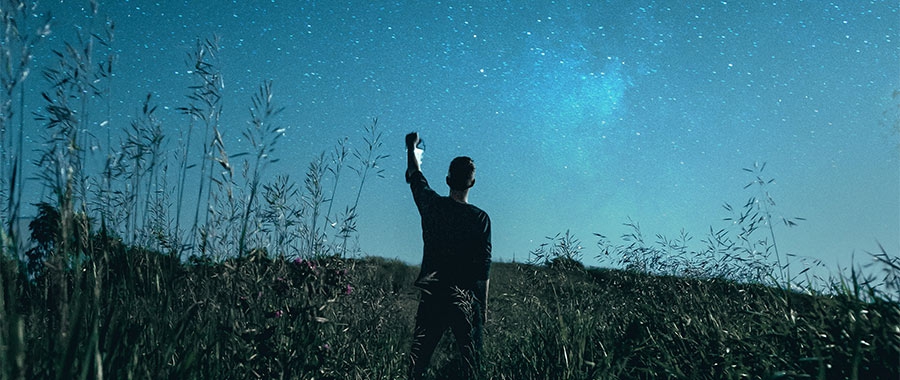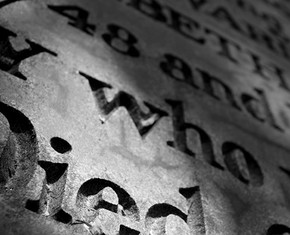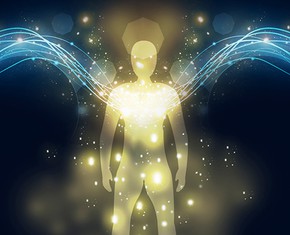The views expressed in our content reflect individual perspectives and do not represent the authoritative views of the Baha'i Faith.
As a writer, I’m always looking for ideas, though I seldom need to look far.
Being curious has its rewards, since taking an interest in people, places and events keeps me engaged and in a continuous mode of learning.
I seem to be in lofty company, considering this quotation from Albert Einstein:
The important thing is to never stop questioning. Curiosity has its own reason for existing. One cannot help but be in awe when he contemplates the mysteries of eternity, of life, of the marvelous structure of reality. Never lose a holy curiosity.
In Einstein’s quote, the phrase “holy curiosity” caught my attention. Curiosity—holy? I had to examine this idea more closely—and not surprisingly, I found support for this idea within the Baha’i teachings.
Perhaps foremost, we can consider the principle of independent investigation of the truth. Abdu’l-Baha wrote:
… each must see with his own eyes, hear with his own ears and investigate the truth himself in order that he may follow the truth instead of blind acquiescence and imitation of ancestral beliefs. – The Promulgation of Universal Peace, p. 454.
This does not mean I should reject everything that I have been told, but it does encourage me to consider the source of the ideas, to decide for myself what is true, and to take responsibility for my own thoughts and beliefs.
Another related principle asks us to consider the timeliness of ideas. While spiritual truths are eternal, social teachings advance and progress through time. Abdu’l-Baha said: “Present exigencies demand new methods of solution; world problems are without precedent.” – Ibid., p. 140.
When I consider how the world has changed over the years (not to mention centuries), it just makes sense that guidance—and this includes religious guidance—needs to be renewed and restated if it is to be relevant and applicable. As a Baha’i I believe that God guides humanity through a succession of Divine Messengers, with Baha’u’llah being the latest:
As the body of man needeth a garment to clothe it, so the body of mankind must needs be adorned with the mantle of justice and wisdom. Its robe is the Revelation vouchsafed unto it by God. Whenever this robe hath fulfilled its purpose, the Almighty will assuredly renew it. For every age requireth a fresh measure of the light of God. Every Divine Revelation hath been sent down in a manner that befitted the circumstances of the age in which it hath appeared. – Baha’u’llah, Gleanings from the Writings of Baha’u’llah, p. 81.
Brain research offers evidence that the trait of curiosity, especially when acted upon over a lifetime, contributes to both brain health and resistance to early-onset dementia. That suggests to me that we are hard-wired to wonder and to never stop growing. While this is still being researched, it offers yet another reason to cultivate curiosity as a lifetime habit.
When considered on a large scale, we find that curiosity encourages creativity, science, innovation, and the arts. Simple examples include the engineer who devises a new technique; a chemist who discovers the properties of a substance; an artist who works with new materials; and a filmmaker who tries new cameras and lights. Truly the list is endless.
On a smaller, more individualized scale, curiosity can result in new friendships, for example in meeting new neighbors. It can introduce new hobbies and outside interests, as I try something and find it enjoyable. It can offer fresh ideas, as I read a new author or listen to a different radio station. Curiosity keeps me humble, as I witness what others are doing and appreciate it.
Curiosity also opens my mind to new interpretations and insights. I find this happens upon rereading a book or re-watching a film. Frequently a formerly overlooked detail or a clue appears to me. Realizing this is the case keeps me in a state of continuous learning. There is no such thing as being “done”; there is always more to learn and to understand.
The Baha’i teachings make it clear that the ultimate purpose of education is to recognize realities, work toward unity, and experience fellowship with all peoples. Beyond what I can learn that is educational or entertaining, what can I use for the welfare of others? That question deserves further contemplation, and is holy enough even for Einstein.
















Comments
Sign in or create an account
Continue with Googleor